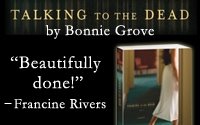It happens to everyone. You deliver a spot on job interview only to find the position went to the boss's nephew. That feller you've been obsessing about starts dating your best friend. That agent or editor you've pinned your future hopes on turns you down. Ugh. Rejection happens to everyone - and if you are a writer it's something you'll need to come to terms with as quickly as possible if you hope to endure in this industry.
Here is a quick reference list to refer to when your day comes and you're looking at the big hairy, ugly face of literary rejection.
1) It isn't personal.
Sure, it feels personal. Rejection stings, sometimes hurts a great deal. You spend countless hours, days, weeks, years crafting a novel, and to have someone read it and say no hurts. But that rejection isn't as personal as if feels. The agent or editor said no to the project, they did not reject you as a person. Agents and editors derive no joy from knowing the people they say no to feel rejected and hurt. The reasons for saying no to a project (and that is how books are viewed in publishing -as projects that eat resources, time, money - not to mention affection and attention) are legion. It's a complex of reasons that have everything to do with things that are beyond any writer's control. The economy, the present workload the agent or editor are shouldering, a shift in the types of books needed, personal taste, resources available, a dynamic market always in flux. Notice how none of these reasons are aimed at you and me - the writers?
2) It doesn't mean you are a bad writer
Not all rejections are created equal. If you are getting feedback from editors and agents who praise your work, yet are still rejecting it, try to understand that this industry is all about two things: Fit and timing. Your book could be fantastic, but that doesn't mean that every publisher is the right fit for your book. Publishing is -heres that word again - complex. There are so many reasons why a good book isn't a fit for a specific publisher, or agent. Because the world of fiction is so subjective, agents and editors ensure they take on projects they are passionate about. They want the opportunity to go to bat for a book they love. It needs to be the whole meal deal in order for them to throw themselves into the fray to represent it.
3) This is no time to panic
The way you handle today's rejection will play a part in tomorrows acceptance. If you lash out in an angry letter or blog post because you feel certain the agent, editor, or publisher will benefit from a piece of your mind, your actions will be remembered. Not in a good way, but remembered all the same. That negative impression will be difficult, maybe even impossible to overcome. You are entitled to your feelings, of course, but keep your choice words and opinions about the agent or editor confined to your most private places. Kick some boxes, scream into a paper bag - then get ahold of yourself as soon as possible.
4) Get support
Still feel too depressed to get out of bed even after you've kicked a box and screamed into a paper bag? Time to enlist some support from your inner circle. I've blogged before about the importance of having an inner circle of trusted friends who know you well and will not only support you when you're down, but also won't go blabbing about how badly you handled being rejected.
5) Have a plan B, C, D, E, F and G.
Most writers have a dream team - a list containing the names of the industry professionals they would sell their little brother in order to work with. The only problem with these lists is they often include the names of industry pros who are also on everyone else's list. I mean, who doesn't want to work with that red hot agent with the Midas touch? Who wouldn't want to be published with that gold standard publisher? But let's go back to point 2 - fit and timing. Your book may not be a fit for that dream agent - but will be a fit for another, equally fantastic agent. It pays to create an open and flexible plan when submitting to agents and editors. The person you think would be best, may not be the best fit for you and your work.
6) Have a concrete plan for improving as a writer.
The best writers are the ones who understand the road of craft is never ending. But improving as a writer doesn't happen without taking specific, purposeful steps. I understood my need to improve most strongly after I became published. I now dedicate portions of my work week to improving my skills as a writer. At the moment, I'm applying myself to a single book on writing as I would a university course. I'm taking my time, studying deeply and at length. And, because of this, if I read a rejection note, I can buoy myself with the knowledge that I am engaged in concrete steps to improve as a writer. That my dedication to my craft will, in time, pay off. As long as I hang on.
I bid you good writing.
Subscribe to:
Post Comments (Atom)










3 comments:
Wow. Thanks! I feel like you wrote to me, in preparation for all the rejection letters I'm going to be getting soon.
I love your warning not to send an angry letter back. Great advice.
I'm wallowing in trust for God and His plan.
Excellent points.
~ Wendy
good point! Writers shouldn't take it personally
Post a Comment